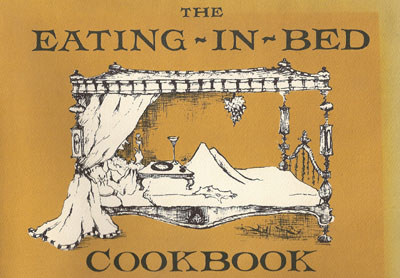In which we have a look at this week's
New York Times Book Review.
This week's Book Review is so entertaining that it may have undermined
my critical fortitude. The issue has a non-seasonal theme, and a title to go
with it: "Bad Boys, Mean Girls, Revolutionaries, Outlaws, and Beautiful Losers."
It's an irresistible rubric.
Bad Boys
Not being plugged in to the deeper layers of New York's media culture, I
don't know just why the Review invited filmmaker John Waters to write an
appreciation of Tennessee Williams, à propos of nothing in particular, for the
"Bad Boy" issue. (Ha! There's undoubtedly a career-serving à propos underneath
it somewhere - and I don't necessarily mean John Waters's.) It's a sweet piece,
but because it's so strong about the very things that I long ago decided that I
could live without out in Williams, it doesn't inspire me to reconsider my
decision that the playwright is not on my list. Perhaps the following will make
my case:
Of course, I knew who Tennessee Williams was. he was a bad man because
the nuns in Catholic Sunday School had told us we'd go to hell if we saw
that movie he wrote, Baby Doll - the one with the great ad campaign,
with Carroll Baker in the crib sucking her thumb, that made Cardinal
Spellman have a nation-wide hissy fit. The same ad I clipped out of The
Baltimore Sun countless times and pasted in my secret scrapbook. The
movie I planned to show over and overin the fantasy dirty-movie theatre in
my mind that I was going to open later in life, causing a scandal in my
parents' neighborhood.
The sad truth is that John Waters is far more my type of bad boy than
Tennessee Williams could ever be. Williams is quoted in the piece as having said
"I've had a wonderful and terrible life and I wouldn't cry for myself. Would
you?" I don't buy this bit of braggadocio - not from the author of Cat on a
Hot Tin Roof. I admire Mr Waters for believing it, though.
Stephen Heller's review of I, Goldstein: My
Screwed Life, by Al Goldstein and Josh Alan Friedman, is electric
for one reason only: Mr Heller drops the fact, by way of disclosure, that he was
the first art editor of Screw - at the age of seventeen. There is really
nothing that Al Goldstein can have done, in his long and picaresque exploitation
of the First Amendment, that equals Mr Heller's professional precocity. But
something about the review suggests that Mr Heller may have learned a thing or
two about generosity from his former boss.
Goldstein, in addition to being a porn king, made an art of
self-loathing. It pervades I, Goldstein, and was his most driving and
destructive force. Despite his aggressively funny writing style, Goldstein
doubted he was truly intelligent.
There is currently no more emphatic praise than to say of someone that he or
she doubted his or her intelligence. Mr Heller may be forgiven, under the
circumstances, for having much more to say about Al Goldstein than he has to say
about Mr Goldstein's memoir, which is almost definitely review-proof.
Ron Powers nails Barry Miles's biography, Charles
Bukowski, in one line - to which I'll add the one that follows.
Since Miles curiously offers hardly any examples of Bukowski's poetry, he
is in a competition that only his subject can win. Why bother to read the
biographer's endless prosaic variations on "He drowned himself in alcohol"
when we have access to the master's own testimony.
Mr Powers also thinks that Howard Sounes's 1999's Charles Bukowski: Locked
in the Arms of a Crazy Life is a better study. He does suggest, however,
that Mr Miles writes better than he thinks he does.
Ralph Steadman, the excoriating illustrator who among other things was Hunter
S Thompson's sidekick on several gonzo journalistic exploits, has given us
The Joke's Over: Bruised Memories: Gonzo, Hunter S
Thompson, and Me. Will Blythe notes that "For a few years in the
1970s, it did appear that insanity was a great career move," and/but concludes
that "His illustrator tries to put the best possible light on the matter, but
betrayed and appalled, he can't." I myself have had all photographs taken of me
during the early Seventies destroyed, and I advise you to do likewise. Only the
women came out of that time looking good.
Given the company, it seems almost cruel to hold up Tom Sykes against the
deranged examples set by his elder betters, but the former "nightlife columnist
and occasional [New York Post] Page Six [gossip] reporter at
large" leaves us no choice - or at least the editors of the Review don't.
What Did I Do Last Night?: A Drunkard's Tale
is a title that I fell in love with on sight, because it was so nice to know
that someone was asking that question, but Campbell Robertson's review is not
promising - and if anybody could have sold this book, it's the blazingly clever
Mr Robertson, whose own far superior gossip column in the Times was put
to a stop by the Spanish Inquisition. Coming from an ordinary Times
reviewer, the following sentence would be discouraging: "Sykes's book is not
ambitious: there are few attempts at insight or sparking observations." But
coming from Campbell Robertson, it's utterly flattening. One would spend the
whole time wishing that Mr Robertson had written the book.
Mean Girls
Naturally, there aren't nearly as many girls as there are boys - only two -
and while both are enthusiastically "bad," it seems unjust to label either as
"mean." Courtney Love is certainly ambitious, but, far from sounding heartless,
she reminds me of Jay Gatsby. It may be ridiculous to claim that the "man I most
want to sleep with: W B Yeats," but it's plucky. Emily Nussbaum regards
Dirty Blonde: The Diaries of Courtney Love,
edited by Ava Stander, as premature and messy, but it's possible that those two
adjectives describe the singing star's appeal, and Ms Nussbaum seems aware of
this. Her review teeters on condescension but is certainly never withering. One
wonders if Ms Love will suffer the fate of Alice Denham, i e oblivion,
just as one wonder if Ms Denham's Sleeping With Bad
Boys, A Juicy Tell-All of Literary
New York in the Fifties and Sixties will resuscitate her claim to
fame. Stacey D'Erasmo's review is wide-eyed but sympathetic.
A feminist critique of her position in those years weaves through the
book - what happened to women who liked sex, the incredible arrogance of the
male lit stars, the hypocrisy of the age - but the younger Denham, the eager
black-clad artiste and adventurer, seems heartbreakingly credulous. When
James Jones went to her apartment with a bottle of liquor and a bouquet of
compliments on her first published short story (about a woman who accepts
money for sex), did she truly believe they were outlaw writers together? Did
she believe it a few hours later? When Playboy reprinted that same
short story in the issue for which she was the centerfold, did she honestly
think the magazine was interested in her literary skills?
Revolutionaries
Allen Ginsberg and Edward Abbey may have misbehaved from time to time, but it
was always for a good cause, not in pursuit of irresistible impulses. Calling
them "revolutionaries" may seem to be a stretch, but both were untiring critics
of American complacency who, unlike the bad boys, expected better of the United
States.
Walter Kirn writes generously of Ginsberg's life and work. The poetry has
recently been collected (Collected Poems, 1947-1997),
and Mr Kirn's take on it is revitalizing.
Even Whitman, Ginsberg's spiritual mentor, had never dreamed of such
democracy. The egalitarianism of looming extinction. No wonder so many of
Ginsberg's poems, especially those he wrote in his full potency, took the
form of roll calls, lists and litanies, dispensing with time-consuming
syntax and substituting ampersands for "ands." Cold war America, in
Ginsberg's view, was Now or Never Land. Either speak up immediately and
fully or, perhaps, miss the chance to speak at all.
As for I Celebrate Myself: The Somewhat Private
Life of Allen Ginsberg, by Bill Morgan, Mr Kirn's judgment is
extremely brisk: it's "exhaustive yet not exhausting, swiftly readable new
biography." Mr Morgan might be forgiven for wishing that the review had a little
more to say about his book in the very great space afforded to Mr Kirn, who, in
context, seems impatient to be done with it.
If the English produce eccentrics, then we Americans produce cranks, and
Edward Abbey is a prime specimen. The novelist was an inveterate writer of
letters to editors, and they form a substantial portion of
Postcards From Ed: Dispatches and Salvos From an
American Iconoclast, edited by David Petersen. Jonathan Miles's
review is amused, and he provides scads of provocative quotes. In the end,
though, he prefers Abbey's novels and journals, noting that the letters show the
writer "from the neck up." Sprinkled throughout his piece are hints of a
formidable misogyny, disguised as an enthusiasm for beautiful women. (Abbey
married five times.)
Outlaws
The outlaws are all fictional, except for one of the authors, Subcomandante
Marcos, of Chiapas guerilla fame. The subcommandant has teamed up with a
seasoned Mexican detective novelist, Paco Ignacio Taibo II, to write alternating
chapters in a book entitled The Uncomfortable Dead
(What's Missing Is Missing), translated by Carlos Lopez. Andrey
Slivka dismisses the result as a "gimmick."
The problem is mostly with Marcos, whose chapters ramble on at almost
twice the length of Taibo's. The subcomandante, who isn't a first time
author ... is simply not a talented fiction writer; it's sometimes hard even
to know what his sentences mean.
... It's like watching Thelonious Monk being shoved off the stool by a
thumping fellow in a mask.
Concerned readers will be relieved to know that Mr Slivka is "based in Kiev"
- or will they? Natalie Moore's review of Bleeding
Hearts, by Ian Rankin, is not quite so negative, but Ms Moore
stresses that this book, originally published under a pseudonym in 1994, shows
just how much the notable creator of John Rebus had to learn as recently as
twelve years ago. A scene set in Seattle prompts her to write, "A reader's
credulity stretches only so far." As for Mark Winegardner's
The Godfather's Revenge, Michael Agger
says of its central character, Nick Geraci, that he is "somewhat unbelievable.
He's a wiseguy in search of a Renaissance weekend." In the end, Mr Agger feels
that the book adds nothing to the Corleone literary tradition, leaving one with
the question, However did this book get into the Review?
Beautiful Losers
More false promise (see "Outlaws"). The only beautiful loser that I can find
in the Review is Neal Cassady, who was beautiful and who, because, as
James Campbell puts is in his review of Neal Cassady:
The Fast Life of a Beat Hero, by David Sandison and Graham
Vickers,
In the early days, Cassady had ambitions to write, but a rudimentary
education compounded by an inability to concentrate on tasks requiring
sustained effort mean his attempts (mostly fragments of autobiography,
collected in 1971 as The First Third) lack refinement - even the
refinement required to make them read "raw" - and structure. Cassady
understood this, while others did not.
Mr Campbell treats the authors' claim that Cassady was "a uniquely creative
mind that somehow managed to change the course of American literature by proxy"
as "not exaggerated," but he has almost nothing to say by way of evaluating the
biography. As well as beautiful, Cassady is still somewhat dazzling.
The only other losers are trends. There's the
Free Press: Underground and Alternative Publications, 1965-1975,
explored in a book by Jean-François Bizot, reviewed by Gary Kamiya. The book
"reminds us that the alternative press could be juvenile, didactic, and
impossibly heavy-handed - but also hilarious, Swiftian and brilliantly
creative," but
There will never be publications quite like these agian, because the
culture form which they sprang is gone forever. And these journals were not
the highest achievement of that culture - that honor goes to music.
The other loser, sort of, is the downtown culture of Old New York, as in
Up Is Up But So Is Down: New York's Downtown Literary
Scene, 1974-1992, a collection edited by Brandon Stosuy. The book
is necessarily elegiac: it's a retrospective of those aspects of New York's hip
edginess that are no longer current. Meghan O'Rourke puts her finger on what has
changed:
Up Is Up drives home the argument that it wasn't just rising rents
but AIDS that brought this period to a definitive end. The age of outrageous
play was replaced by an age of sex ed and condo conversions. The media may
proclaim Red Hook or Bushwick the new Bohemia, but these neighborhoods
simply don't have the seedy charge of the East Village in the 1970s and '80s
- a contemporary hipster style, intellectual and sartorial, hardly has the
same anti-authoritarian bristle.
Sadly, Ms O'Rourke declines to offer a judgment of the book as a collection.
Perhaps because, as she notes, she and her brother were riveted as kids by the
first Mohawks, she's in no position to tell us whether Mr Stosuy's selection is
as judicious as it might have been.
Rachel Donadio's Essay, "Art of the Feud," is remarkable for emphasizing, as
it goes along, its own complete lack of necessity. Does the exchange of insults
between and among writers and critics somehow revitalize literature? Does it
amount to more than squalid entertainment? If you have to ask, then you may go
to your room and live without everyone but Amis and Mailer until you see the
error of your ways.


